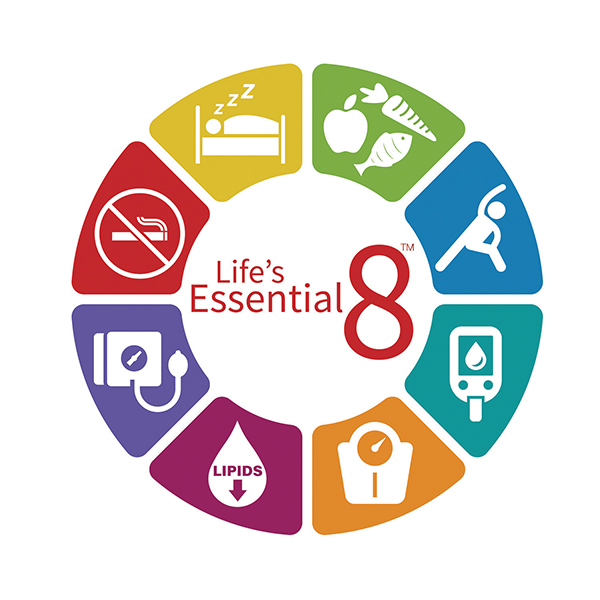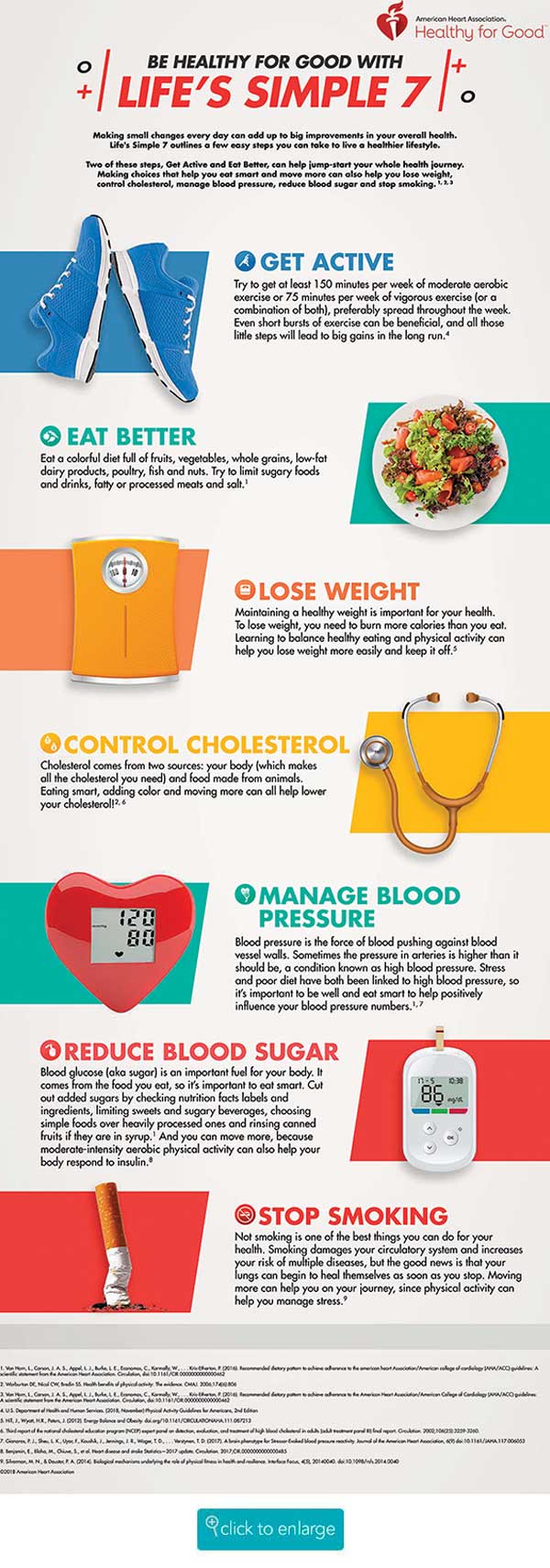
(Family Features) Cardiovascular disease is the No. 1 cause of death in the United States and globally. Studies throughout the past two decades indicate more than 80% of all cardiovascular events may be prevented by a healthy lifestyle and management of risk factors.
To help Americans measure their cardiovascular health and make meaningful lifestyle changes, the American Heart Association introduced Life’s Essential 8, a checklist that explains eight habits and health measures that affect heart and brain health and overall well-being.
The checklist incorporates knowledge gained from more than 2,400 scientific papers on cardiovascular health published since it was initially introduced as Life’s Simple 7 more than a decade ago. It has been expanded to apply to anyone age 2 and older, and now includes sleep as the eighth cardiovascular health component, reflecting findings that healthy sleep is essential for optimal heart and brain health.
“The idea of optimal cardiovascular health is important because it gives people positive goals to work toward at any stage of life,” said Donald M. Lloyd-Jones, M.D., Sc.M., EAHA, president of the American Heart Association and chair of the department of preventive medicine at Northwestern University’s Feinberg School of Medicine. “We felt it was the right time to conduct a comprehensive review of the latest research to refine the existing metrics and consider any new metrics that add value to assessing cardiovascular health for all people.”
Start making positive changes to improve your heart and brain health with these eight essential steps:
 Eat Better
Eat Better
The checklist offers a simple questionnaire to assess your eating pattern. A heart-healthy diet encompasses a high intake of fruits, vegetables, nuts, and legumes; whole grains and fat-free and low-fat dairy; lean protein; and low intake of sodium, red and processed meats, and sweetened foods and drinks. Eat whole foods and rely on healthy non-tropical oils (like olive and canola) for cooking.
Get Active
For most adults, the target level of moderate physical activity (such as walking) is 150 minutes or more per week or 75 minutes per week of vigorous-intensity physical activity. Kids ages 6 and older need 1 hour or more of play and structured activities per day.
Quit Tobacco and Nicotine
Nicotine makes your heart rate and blood pressure skyrocket while carbon monoxide and tobacco rob your heart, brain, and arteries of oxygen. There are about 4,000 chemical components found in cigarettes; at least 250 of them are harmful to your health. Reducing your health risk means eliminating exposure to any form of nicotine, including cigarettes, e-cigarettes, and vaping devices, as well as limiting your exposure to secondhand smoke.
Get Adequate Sleep
Getting a good night’s sleep is vital to cardiovascular health. Measured by average hours of sleep per night, the optimal level is 7-9 hours daily for adults. Ideal daily sleep ranges for children are 10-16 hours per 24 hours for ages 5 and younger; 9-12 hours for ages 6-12; and 8-10 hours for ages 13-18.
Maintain a Healthy Body Weight
Although the measure of body mass index (BMI) is not a perfect metric, it is easily calculated and widely available; therefore, BMI remains a reasonable gauge to assess weight categories that may lead to health problems. A BMI of 18.5-24.9 is associated with the highest levels of cardiovascular health.
Manage Cholesterol Levels
Non-HDL (“bad”) cholesterol, rather than total cholesterol, is a reasonable predictor of cardiovascular risk. Non-HDL cholesterol can be measured without fasting, which means it can be assessed at any time of day and reliably calculated.
Manage Blood Glucose
When there is not enough insulin or the body does not use insulin efficiently, blood glucose levels accumulate in the bloodstream. Hemoglobin A1c readings measure your long-term blood glucose control. A normal A1c is below 5.7%; between 5.7%-6.4% indicates pre-diabetes.
Understand Blood Pressure Readings
Optimal blood pressure is less than 120/80 mm Hg while hypertension is defined as a 130-139 mm Hg systolic pressure (the top number in a reading) or 80-89 mm Hg diastolic pressure (bottom number).
For more ideas to achieve optimal cardiovascular health, or to assess your health and lifestyle risks, visit heart.org/lifes8.
Photo courtesy of Getty Images
American Heart Association

